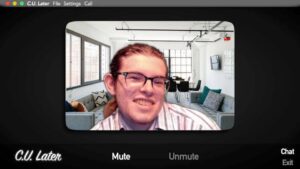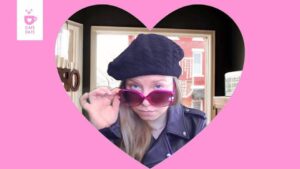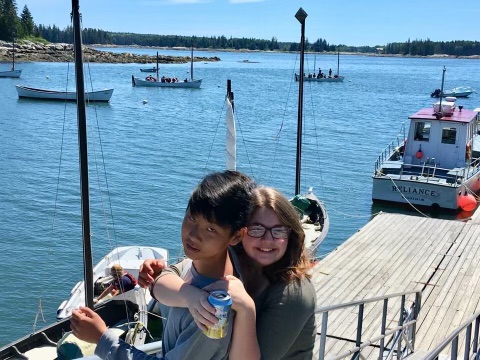Almost as it once was…


Castleton University’s Theater Arts department put on its usual spring semester shows this past weekend.
Just a little differently this time.
Because of the COVID-19 pandemic, the theater program opted for multiple virtual short-plays that audiences can buy and stream online, instead of their usual spring musical.
They coined these performances “Short C.U.T.S” (Castleton University Theatre Shows), a collection of six short comedies streamed on Broadway On Demand for a total of $5.
“We hadn’t done a full play since “A Christmas Carol” in December of 2019,” said Harry McEnerny, director of the Theater Arts Department. “We were two weeks away from opening “Big Fish” when school was moved to a virtual platform last March.”
McEnerny explained that theater everywhere changed, and there have been no live performances for over a year. But, for Castleton, if the department doesn’t produce anything, it turns into a theoretical discipline rather than a practical one.
“Theater is to be done and seen, and we have a responsibility to do it,” he said. “So we selected this format. I figured we could control the environment enough to keep everyone safe.”
Cast and crew rehearsed over Zoom, and actors were sent recording equipment and recorded on their laptop cameras, and the footage was sent to Castleton student Luke McGee to edit.
“Zoom rehearsals were a little bit difficult at times just because of the lag,” said Veronica Stevens, a sophomore performer in Short C.U.T.S. “Comedy is really difficult to do when there’s a delay because it’s harder to play off of each other, but other than that it was fine. It was nice to at least be able to do something with theater despite the restrictions of the pandemic.”
McEnerny said they chose comedies because “who couldn’t use a laugh or light-hearted moment these days?”
Gabrielle Lazzaro, a recent graduate of Castleton University and director of one of the short plays, directed last year’s senior project virtually, so she knew what she was getting into. But virtual directing puts more pressure on the actors as they have to set up their own space and make a lot of their own choices with what the audience sees.
“I had to put emphasis on the actor’s intention so that the lines came out exactly the same every time, because the final product wouldn’t have the shared energy we’re all used to,” she said. “There was a feeling of uncertainty at points, but I was confident that I did my job well enough and I knew I could trust the other people involved to make something great out of it.”
Michael Newman is a freshman at Castleton University and “Short C.U.T.S” was their first Castleton show. But despite the format change, Newman said they weren’t missing out on anything.
“I mean, considering the circumstances, I feel like [being virtual] was probably the best option,” they said. “Most schools haven’t done anything theater-wise so I’m glad I got to do something.”
Others agreed, but said differences between virtual and in-person shows are pretty significant.
“I’m glad our department has been able to work around these boundaries, but there are crucial pieces missing from our normal creative process,” says Lazzaro. “There is a distinct difference between film and stage and that comes from knowing you are being seen and having your character’s story told for these specific people at this specific time.”
But, Lazzaro says that everyone should be proud of what they put out there as a collective.
“I love that I was able to create anything at all given the unreal times we’re living in,” she says. “One thing Harry McEnery says about our art is that theater always tells the truth, and I think we did that.”







